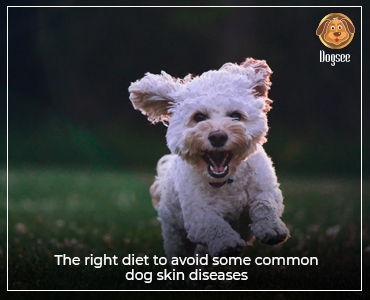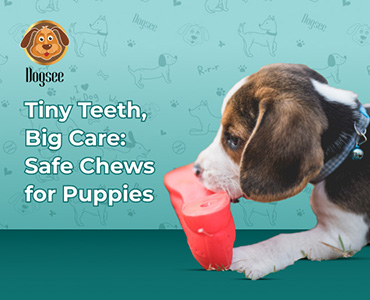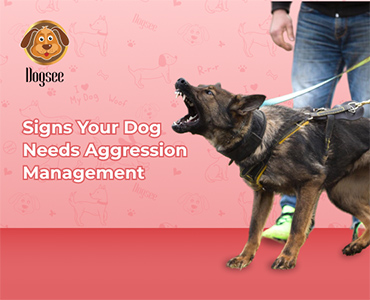
Keeping your pet healthy is a top priority for many pet parents. Unfortunately, many pets become overweight due to improper nutrition or lack of exercise. In this article, we'll explore how pet obesity affects the health of your dog and discuss how you can help your pet stay fit with hypoallergenic dog food. Read on to learn more about the twelve health problems caused by pet obesity and how you can help your furry friend stay healthy!
Obesity in Pets: A Growing Concern in 2023
Obesity in pets has become a growing concern in recent years. While it is encouraging that pet parents are becoming more aware of the problem of obesity in pets, it is still a major concern. Pets that are obese are at risk for a number of health problems and it is important to do whatever you can to help your pet maintain a healthy weight.
When are dogs considered as obese?
There are a number of different factors that contribute to what is considered obese in dogs. One of the most important factors is body condition score (BCS). This is a numerical scale that ranges from 1 to 9, with 1 being very thin and 9 being obese. Other factors that contribute to obesity in dogs include weight, body fat percentage, and height.
Weight is the most obvious factor when it comes to determining if a dog is obese. Generally speaking, any dog that weighs more than 20% above their ideal body weight is considered obese. However, this number can vary depending on the breed of dog. For example, smaller breeds tend to have a higher percentage of body fat and therefore can be considered obese at a lower weight than larger breeds.
Body fat percentage is another important factor in determining obesity in dogs. A dog with a higher body fat percentage will have more fat tissue and less muscle tissue. Generally speaking, any dog with a body fat percentage of more than 30% is considered obese.
Height can also be a factor when determining obesity in dogs. Taller dogs tend to have more lean muscle mass and less body fat than shorter dogs. As such, taller dogs may be considered obese at a lower weight than shorter dogs.
12 health Issues in dogs caused due to obesity

While a little extra weight your pet is carrying may not seem like a big deal, obesity in pets can lead to a number of serious health problems.
According to a recent survey by CanineKart, a health and fitness community, an estimated 34.4% of dogs are overweight and 25.6% dogs are obese in India. That is a whopping number of dogs in need for better dog healthcare and a more effective diet. And considering that there are so many health issues that are initiated due to obesity, it becomes all the more urgent for pet parents to take effective steps towards this cause. Let’s look at some of the reasons how obesity can alter your pet’s happy existence.
Arthritis: Arthritis is a common health problem in dogs, and obesity is a major risk factor. Arthritis occurs when the joints are damaged, causing pain, stiffness and inflammation. Obesity puts extra strain on the joints, which can speed up the development of arthritis.
Heart Disease: Obesity puts extra strain on the dog's heart and can lead to heart disease. Heart Disease is a serious condition that can be fatal in dogs. It is important to catch it early and get your dog treated by a veterinarian. Symptoms of heart disease include coughing, abdominal swelling, difficulty breathing, increased breathing rate and lethargy. If you notice any of these symptoms, please take your dog to the vet as soon as possible.
Diabetes Mellitus: Diabetes mellitus in dogs is a condition that can be caused by obesity. When a dog is obese, their pancreas has to work harder to produce insulin, which can lead to diabetes. Symptoms of diabetes mellitus in dogs include increased thirst, urination, and appetite. If your dog is showing any of these symptoms, it is important to take them to the vet for a check-up. Diabetes mellitus is a serious condition that can be difficult to manage, but with the right treatment plan, your dog can live a long and happy life.
Neoplasia: Neoplasia is the abnormal growth of cells and can be benign (non-cancerous) or malignant (cancerous). Obesity can cause an increase in the size and number of fat cells, which can lead to the development of neoplasms. In addition, obesity can also cause an increase in circulating hormones, which can promote the growth of certain types of cancer cells. Treatment for obesity-related neoplasia typically involves weight loss and may also require surgery, radiation therapy, or chemotherapy.
Skin Conditions: That's right - being overweight can actually cause skin problems in dogs. The extra folds of skin that are created by excess weight can provide the perfect environment for bacteria and yeast to thrive. This can lead to painful infections and irritation. What's more, these skin conditions can be very difficult to treat, often requiring multiple courses of medication.
Respiratory Problem: Dogs that are obese often have trouble breathing and may develop respiratory problems. This is because the extra fat tissue can make it difficult for the lungs to expand and contract properly. Respiratory problems can further lead to other serious health conditions in the long run.
Liver Disease: Liver disease is one of the most common health problems in dogs, and it can be especially serious in obese dogs. The liver is responsible for filtering toxins out of the blood, and when it becomes overloaded, those toxins can build up and cause damage. Obesity makes liver disease more likely because it puts extra strain on the organ.
Less effective Immune system: When a dog is obese, its immune system doesn't work as well as it should. This means that the dog is more susceptible to infections and diseases. And it might take a longer time to recover as compared to a dog that is healthy and of ideal weight.
Tumors: There are many different types of tumors that can affect dogs, but the most common ones associated with obesity are lipomas and adenomas. Lipomas are fatty tumors that often occur in older dogs. They are usually not cancerous, but they can grow large enough to cause discomfort or restrict movement. Adenomas are glandular tumors that often occur in the skin or mucous membranes. They can be either benign or malignant, but most adenomas in dogs are benign.
Exercise intolerance or lethargy: Exercise intolerance or lethargy in dogs due to obesity is a common health issue that many pet parents face. Dogs who are obese often have a hard time exercising and may seem lazy or tired. This is because their bodies are carrying around extra weight, which can make it difficult to move around.
Anesthetic complications: Obesity is a risk factor in dogs for many anesthetic complications, including airway obstruction, difficult intubation, increased blood pressure and cardiac output, and decreased oxygen delivery to tissues. Fatty deposits in the liver can also lead to problems with metabolism of anesthetic drugs. Obese dogs are also more likely to develop postoperative complications such as pneumonia and atelectasis.
Increased risk of ACL: One of the issues caused by obesity is an increased risk for anterior cruciate ligament (ACL) injury. ACL tears are unfortunately common in dogs of all sizes, but obese dogs are especially susceptible due to the added strain on their joints. A torn ACL has to often be rectified with a surgery.
How to help your pet beat obesity?

First, you'll need to choose a hypoallergenic dog food that will help your pet lose weight safely and effectively. You'll also need to make sure that the food you select is high in protein and low in calories. Once you've selected the right food, you'll need to create a feeding schedule that includes several small meals throughout the day. In addition to regular meals, you'll also want to make sure your dog gets plenty of exercise.
You can help your overweight dog get more exercise by creating an exercise regimen. First, start by slowly increasing the amount of activity your dog gets each day. If your dog is used to only going for a short walk, try adding in some additional time or distance. You can also try playing fetch or other games that will get your dog moving.
It’s important to consult with your veterinarian before starting any new exercise regimen, especially if your dog is overweight. They can help you create a safe and effective plan that will help your dog lose weight and get healthy.
Another important factor is the diet that is being administered to your dog. Poor, allergic or imbalanced nutrition can be one of the major factors that affect your dog’s weight and well-being. There are a number of different types of food that can cause allergies in dogs, and these can often lead to weight gain. One of the most common allergenic foods is wheat and other grains, which is found in many commercial dog foods. Other allergenic foods include corn, soy, chicken and beef.
Allergies can cause a number of different symptoms in dogs, including itchiness, skin problems, digestive issues, and weight gain. If your dog is displaying any of these symptoms, it's important to take them to the vet for a check-up. Allergies can be treated with medication, dietary changes, or both.
Poor nutrition in dogs or imbalance in nutrients can also be the cause of obesity. Therefore, it is important to provide them with a well-balanced meal that doesn't contain too much fatty food and is a good blend of the right kind of proteins, vitamins, minerals and calcium.
Read our blog on dog feeding, what to feed your pet and feeding time & schedule
What is a Hypoallergenic Diet?
A hypoallergenic diet is a type of food allergy prevention diet. It is designed to reduce the chances of an animal having an allergic reaction to their food. The diet does this by avoiding ingredients that are known to cause allergies, and by including ingredients that are less likely to cause allergies.
Does a hypoallergenic diet help with obesity in pets?

Hypoallergenic dog food is often lower in calories than regular dog food, so your pet will be consuming fewer calories overall. Hypoallergenic dog foods are designed to be highly digestible, so your pet will absorb more of the nutrients from their food. Hypoallergenic dog treats or low fat dog treats are ideal snacks that combat obesity by providing nutrition that is specifically meant for weight loss. Hence, it is quite crucial to choose the right kind of food when your pet is suffering from obesity.
Frequently Asked Questions (FAQ’s):
1- Can dog food allergies cause weight gain?
Answer: Yes, there have been in depth studies that prove that dog food allergies cause weight gain in dogs. This is not only true for dogs but humans too. Gluten and grain allergies can cause weight gain or sometimes even excessive weight loss in dogs. At Dogsee, our treats are specifically formulated without gluten and grains to ensure dogs are safe from allergies.
2- How does gluten affect my obese dog?
Answer: If your dog is obese, you may want to consider switching to a hypoallergenic diet. Gluten can affect dogs in a number of ways, it can cause inflammation in the small intestine which can further lead to diarrhea, weight loss or weight gain. Hypoallergenic dog food made without gluten can help your dog lose weight and feel better.
3- What are the symptoms of obesity in dogs?
Answer: The most obvious symptom of obesity in dogs is an overweight or obese body condition. However, there are other symptoms to look out for as well. Dogs who are obese may have difficulty moving around and may be lethargic. They may also pant more than normal and have trouble breathing, hesitate to go for walks, and suffer from increased tiredness.
4- What is the main cause of pet obesity?
Pet Obesity can be caused due to overfeeding and lack of physical exercise. Hypothyroidism and insulinoma are other causes for pet obesity.
5- What are the different types of food that can cause pet obesity?
High fat foods, unhealthy treats that are highly processed, table scraps and frequent changing of pet diet are some of the different types of foods and reasons that lead to pet obesity.
Dogsee hypoallergenic treats are gluten and grain free, making them a great option for dogs with allergies and obesity. The treats are also 100% vegetarian, so they're perfect for parents who want to avoid feeding their pets high fat and processed treats that can have serious repercussions to your pet’s health in the long run. Made with Himalayan Yak Cheese, it has nutrients without all the unhealthy artificial ingredients and preservatives. Try our range of healthy hypoallergenic dog treats that can aid in maintaining their overall health and keep their weight in check.
Shop for the best healthy treats this 2023 at Dogsee and pick treats that are healthy, hypoallergenic and ideal for your obese dog!
Take a strong stance against Obesity and provide your dog healthy meals and treats to ensure their wellbeing. A healthier dog means a happier parent and a cheerful environment for all!
 HELPFUL0 people found it helpful
HELPFUL0 people found it helpful
Related Blogs
Subscribe to Our Blogs
and never miss on the latest update!



















